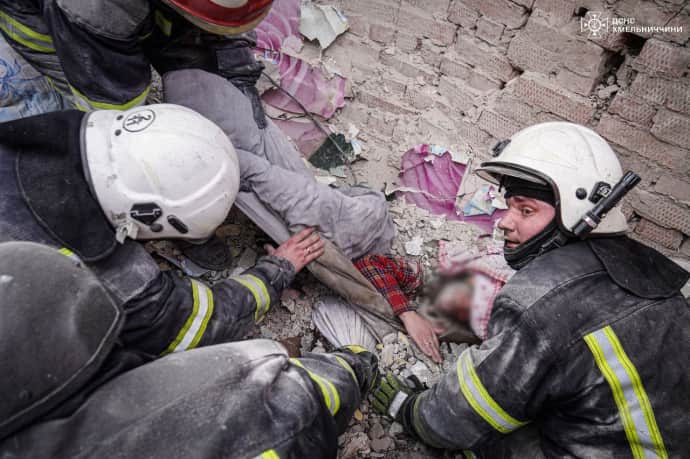Daily Flyer - March 22, 2024
A voice of Ukraine to the West

Zaporizhzhia's Dnipro Hydroelectric Power Plant hit during Russian missile attack
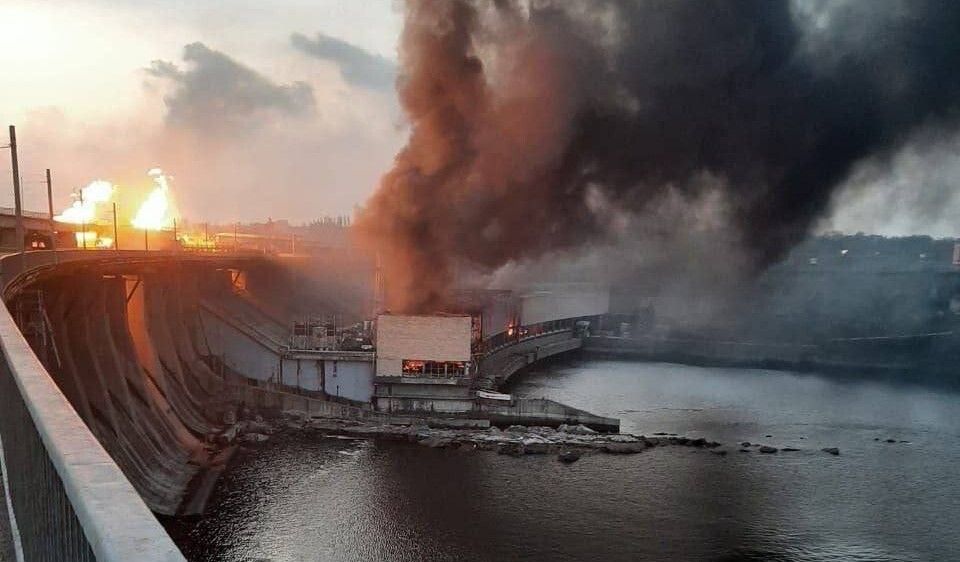
Russia launched a large-scale drone and missile attack targeting several Ukrainian cities overnight on March 22, with a focus on Kharkiv, Zaporizhzhia, and Kryvyi Rih, particularly aiming at the energy infrastructure.
Attacks were reported in multiple other regions, including Khmelnytskyi, Odesa, Mykolaiv, Vinnytsia, Kirovohrad, Lviv, Sumy, Poltava, and Ivano-Frankivsk oblasts.
Regional authorities confirmed at least five deaths and 26 injuries among the casualties reported thus far.
Energy Minister Herman Halushchenko described it as "one of the largest attacks on the Ukrainian energy sector in recent weeks," expressing concerns about potential disruptions to the country's energy system akin to previous attempts by Russia.
The Dnipro Hydroelectric Station in Zaporizhzhia, Ukraine's largest hydroelectric power plant, was hit during the assault, leading to a fire. However, Ukrhydroenergo assured that there was no threat of a dam breach and that the situation was under control.
Traffic across the Dnipro Dam was blocked after a Russian projectile targeted it, causing a trolleybus to catch fire,
reported Petro Andriushchenko, an advisor to the exiled mayor of Mariupol.
Ukrhydroenergo's head, Ihor Syrota, revealed that the Hydroelectric Power Station-2 (HPS-2) on the Dnipro Dam suffered critical damage, with HPS-1 also non-operational. Although the fire was contained by noon, heavy smoke continued to hinder access to the engine room for specialists.
The Prosecutor General's Office confirmed at least one fatality resulting from the attack on the dam and power station, while Governor Ivan Fedorov reported three deaths in Zaporizhzhia. Additionally, at least 15 people sustained injuries in the city, with Russian missiles destroying four houses and damaging over 40 others.
The Dnipro Dam, situated on the Dnipro River just north of the Kakhovka Reservoir, spans 800 meters and holds back a water reservoir of approximately 3.3 cubic kilometers. Last year, Russian forces destroyed the Kahkovka Dam and the adjacent hydroelectric station located downstream of the Dnipro Dam, resulting in a humanitarian and ecological catastrophe across southern Ukraine.
During the overnight hours on March 22, Russian forces targeted the energy infrastructure in the city of Kharkiv, causing significant damage and resulting in a near-complete loss of power in the city. Reports indicated at least 15 explosions in the area.
The State Emergency Service reported at 10:23 local time that approximately 700,000 residents of Kharkiv were left without power due to the attacks. Additionally, one employee of a damaged energy infrastructure facility in the city was reportedly injured as a result of the strikes.
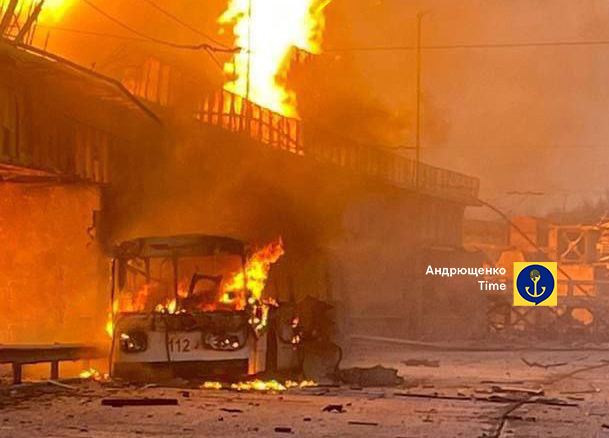
Regional authorities reported that critical infrastructure was targeted in Dnipropetrovsk Oblast, specifically in Kryvyi Rih, as well as in the Pavlohrad, Kamianske, and Dnipro districts. Fortunately, no casualties were reported as a result of these attacks.
The Zaporizhzhia Nuclear Power Plant, Europe's largest nuclear power station currently occupied by Russia, is facing an "extremely dangerous" situation following the attack, as announced by Energoatom.
An external power line connecting the station to Ukraine's energy system was disconnected during the strikes, according to the Ukrainian state-owned company. At present, there is only one remaining connection to Ukraine's power grid.
Energoatom's head, Petro Kotin, expressed grave concern, stating, "The situation is extremely dangerous and threatens to cause an emergency. If the last communication with the domestic power grid is severed, the Zaporizhzhia Nuclear Power Plant will suffer another blackout."
However, by 10:53 local time, Energoatom reported that the power line had been repaired, potentially averting further crisis at the nuclear facility.
Ukraine downs 92 of 151 Russian aerial targets overnight on March 22
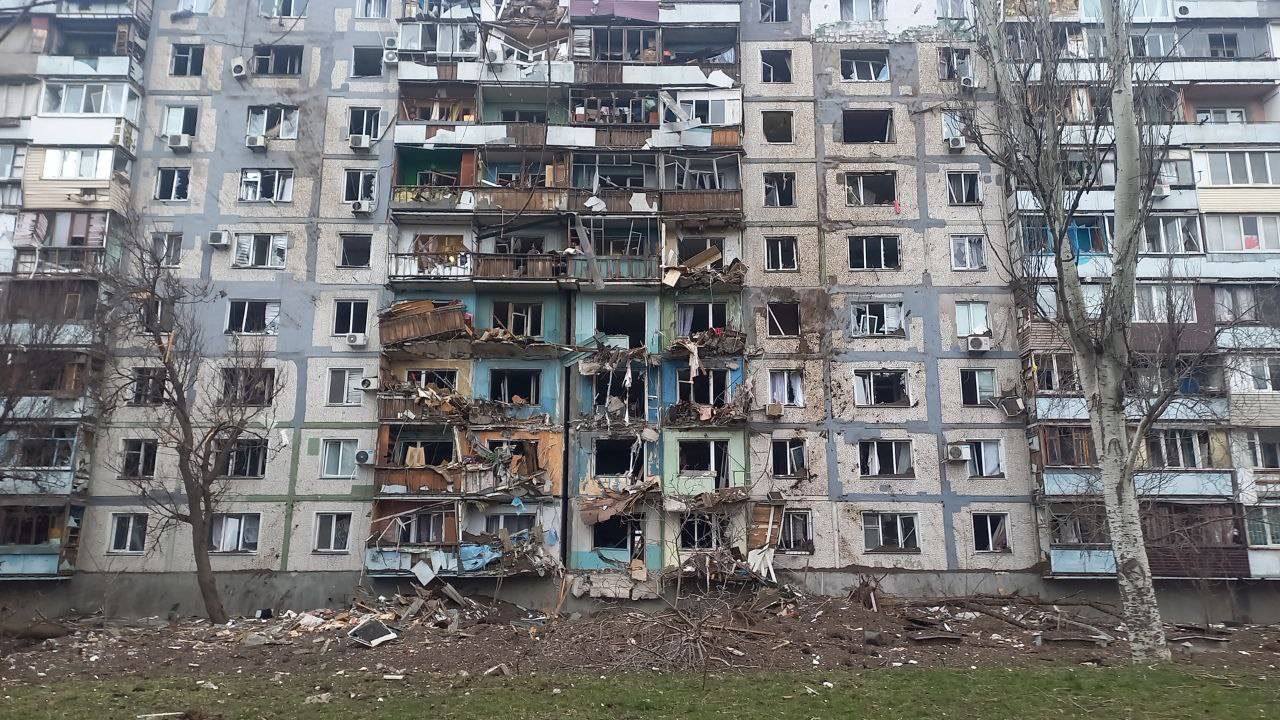
Ukraine's Air Force reported that Ukrainian air defenses successfully intercepted and downed 37 missiles and 55 Shahed-type drones during a mass Russian attack overnight on March 22.
The attack, which targeted cities such as Kharkiv, Zaporizhzhia, Kryvyi Rih, and others, primarily aimed at critical energy infrastructure.
Among the damaged facilities was Zaporizhzhia's Dnipro Hydroelectric Station, the largest hydroelectric power plant in Ukraine.
According to the Air Force's report, Ukrainian forces managed to down 55 Shahed-type drones, 35 Х-101/Х-555 cruise missiles, and two Х-59 guided cruise missiles.
Russian troops employed various weapons during the attack, including 63 Shahed-type drones, 12 Iskander-M ballistic missiles, 40 Р-101/Х-555 cruise missiles, five Х-22 cruise missiles, seven Х-47 M2 (Kinzhal) aeroballistic missiles, 22 S-300/S-400 anti-aircraft missiles, and two Х-59 guided cruise missiles.
The drones were launched from Primorsko-Akhtarsk in Russia's Krasnodar Krai, while the missiles originated from several locations, including Belgorod, Tambov, Kursk, Rostov oblasts, the Caspian Sea, and occupied territories such as Crimea and Zaporizhzhia Oblast.
However, Ukraine's air defense situation remains challenging as crucial ammunition supplies from the United States, a key military donor, remain blocked due to political disputes in Congress.
President Volodymyr Zelensky condemned the Russian attack, emphasizing the urgent need for additional air defense systems, noting that "Russian missiles do not have delays."
One station of Dnipro Hydroelectric Power Plant is in a critical state
At the Hydroelectric Power Station-2 (HPS-2), one of the crucial components of Zaporizhzhia's Dnipro Hydroelectric Power Plant, the situation is dire after two Russian missiles struck it directly. The impact caused damage to crane girders and a support pillar, rendering the station in critical condition.
The head of Ukrhydroenergo, the company overseeing the power plant, expressed concerns about the extent of the damage to HPS-2, stating uncertainty about its operational status following the attack. Additionally, damage to the adjacent dam was reported, although there is no imminent risk of a breach.
Currently, neither HPS-1 nor HPS-2 is operational, further exacerbating the energy crisis. Efforts are underway to assess the extent of the damage throughout the day, with emergency services working tirelessly at the scene.
Tragically, amidst the chaos, one person was reported killed as a result of the Russian attack on Zaporizhzhia's Dnipro Hydroelectric Power Plant.
Energy Minister Herman Halushchenko emphasized the severity of the situation, describing the Russian mass attack on March 22 as "one of the largest" against Ukraine's energy sector. The devastating impact underscores the urgent need for continued international support to mitigate the humanitarian and infrastructure crises facing Ukraine.
US reportedly tells Ukraine to stop striking Russian oil refineries
The Financial Times reported on March 22 that the United States had purportedly cautioned Ukraine against continuing its attacks on Russian oil refineries. According to the report, unnamed sources from Ukraine's military intelligence and Security Service of Ukraine (SBU) revealed that the U.S. had issued warnings, citing concerns that such strikes could lead to global oil price increases and escalate the risk of further retaliation.
In recent weeks, Ukrainian forces have conducted drone strikes targeting Russia's oil industry, hitting refineries located deep within Russian territory. With foreign military aid decreasing, particularly amid the funding deadlock in the U.S., Ukraine has relied more on its domestically produced attack capabilities.
The FT's sources suggested that the U.S. fears potential Russian retaliation, which could include strikes on energy infrastructure used by Western nations, potentially resulting in higher global energy prices. The attacks on Russian refineries have already caused significant disruptions, given Russia's reliance on energy exports to fund its military operations.
Despite U.S. President Joe Biden's repeated expressions of support for Ukraine and commitment to thwarting a Russian victory, he also faces an upcoming reelection battle later in the year. Analysts speculate that the U.S.'s warnings to Ukraine may be influenced by electoral politics, with concerns about the impact of surging pump prices on American voters.
Bob McNally, president of the consultancy group Rapidan Energy and a former White House energy adviser, highlighted the significance of pump prices during an election year, suggesting that this concern might be driving the U.S.'s cautionary approach.
The consequences of Russian strikes on March 22
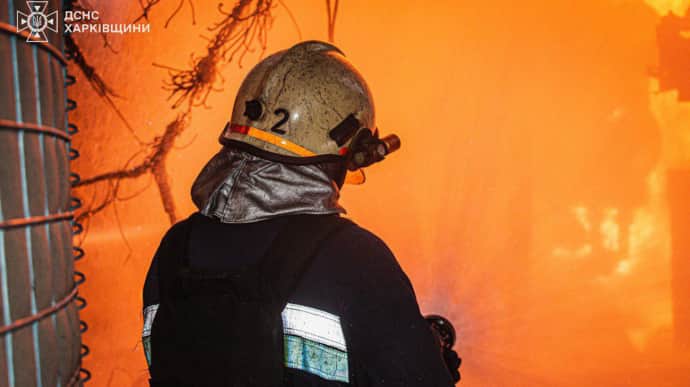
The aftermath of Russia's massive attack in various oblasts of Ukraine continues to unfold, with rescue workers grappling with the consequences. Tragically, the attacks have resulted in the deaths of five individuals due to Russian strikes. Additionally, numerous fires have broken out in the affected areas, exacerbating the already dire situation. Critical infrastructure and residential buildings have been destroyed, compounding the challenges faced by local authorities and rescue teams. The extent of the damage underscores the devastating impact of the ongoing conflict and highlights the urgent need for humanitarian assistance and support for the affected communities.
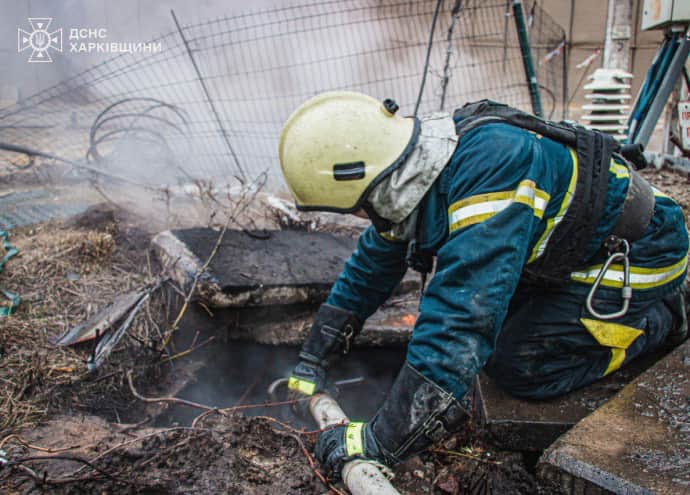
Russian forces targeted energy infrastructure in Kharkiv Oblast, inflicting damage and injuring an employee at one of the facilities. Preliminary reports suggest that around 700,000 consumers are currently without power as a result of the attacks. This disruption to essential services further compounds the challenges faced by residents in the region, underscoring the indiscriminate nature of the conflict and its impact on civilian populations. Efforts to restore power and repair the damaged infrastructure are underway, but the situation remains precarious as the conflict continues to escalate.
The Russian attack in Zaporizhzhia resulted in ten injuries, with three additional individuals reported missing. Previously, one fatality was confirmed due to an assault on the Dnipro hydroelectric power plant. The ongoing violence underscores the severe toll inflicted on civilians and critical infrastructure, highlighting the urgent need for humanitarian assistance and efforts to mitigate further harm amidst escalating hostilities.
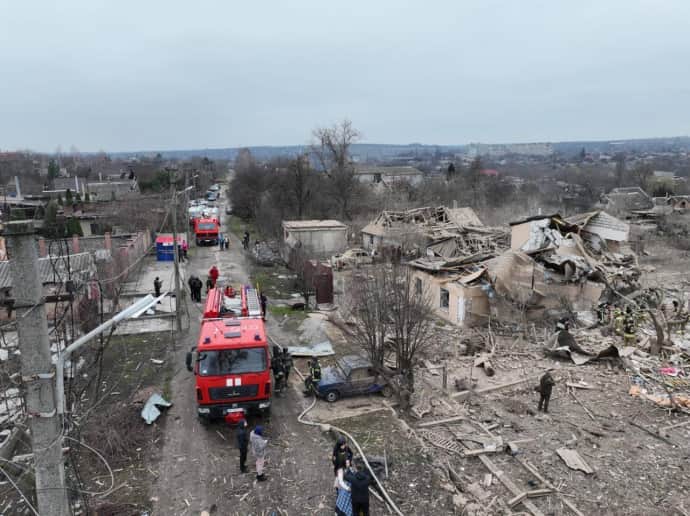
Firefighters successfully extinguished a blaze at a vital infrastructure facility in Ivano-Frankivsk Oblast, sparked by a Russian attack. The prompt response by emergency services helped prevent further damage and potential risks to nearby communities. The incident underscores the ongoing threat posed by Russian aggression and the resilience of Ukrainian responders in safeguarding essential assets and protecting civilian lives.
Preliminary information indicates that two people were injured at the scene.
In Sumy Oblast, Russian attacks ignited a fire in a non-residential building located in one of the settlements within the Shostka district. The incident adds to the growing list of damages inflicted by Russian aggression in the region, underscoring the indiscriminate nature of the attacks and their devastating impact on civilian infrastructure. Efforts to contain the fire and mitigate further harm are underway, emphasizing the urgent need for international support to address the escalating crisis in Ukraine.
In Khmelnytskyi, a tragic toll was exacted by the Russian attack, resulting in the loss of two lives and leaving eight others injured. The indiscriminate violence inflicted by Russian forces underscores the urgent need for international solidarity and support to address the escalating humanitarian crisis in Ukraine. Efforts to assist the injured and provide aid to affected communities remain paramount as the conflict continues to ravage the region.
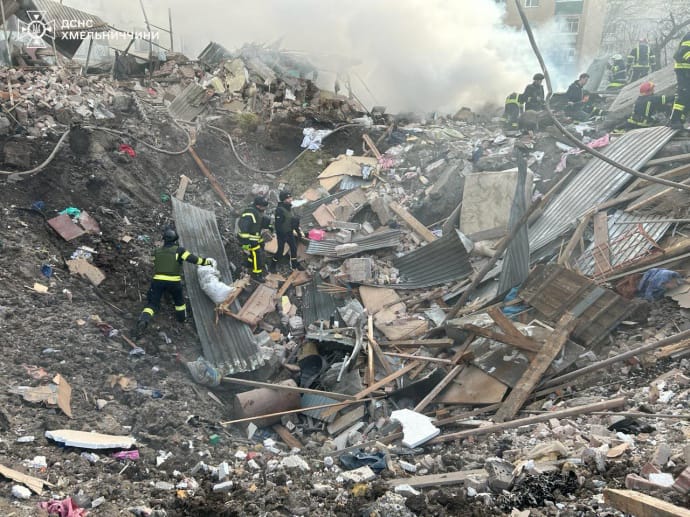
It is reported that a young woman, 21, was rescued from the rubble of the building.
